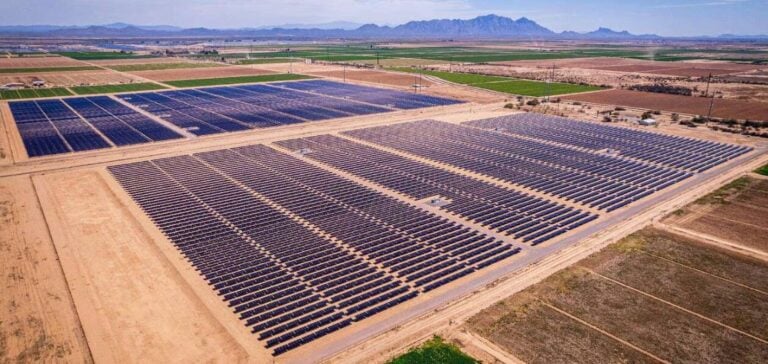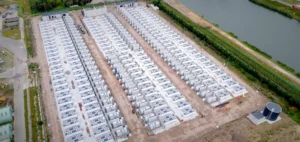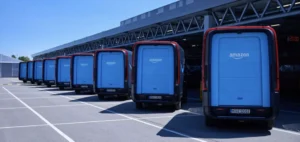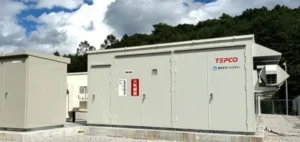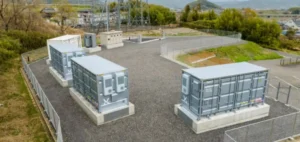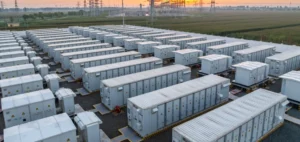RWE, a global player in renewable energies, announces its investment in Australia’s first eight-hour battery energy storage system. This project, located in Balranald, New South Wales, was the only one to be selected in the first tender for long-term energy services in the region. With a planned capacity of over 50 MW and 400 MWh, the Limondale BESS will play a role in storing surplus renewable energy and injecting it into the NSW grid when it is most needed.
Technology and innovative partnerships
For this project, RWE has chosen Tesla as its battery supplier, who will provide its Megapacks, and Beon Energy Solutions as its installation partner, covering the civil, structural, electrical and control work required to connect the Megapacks to the existing 33kV substation. Construction is due to start in the second half of this year, with commissioning scheduled for late 2025. Katja Wünschel, CEO of RWE Renewables Europe & Australia, said:
“RWE’s investment decision and the signing of the supply contracts for the Limondale BESS project are an exciting step in our commitment to Australia’s renewable energy sector and supporting New South Wales’ renewable energy ambitions.”
RWE’s commitment and strategy in Australia
Present in Australia since 2013, RWE began construction of the Limondale solar farm in 2018. With an installed capacity of 249MWac, this large-scale solar farm comprises 872,000 panels and generates enough electricity to power around 105,000 homes a year. From the start of full commercial operation in 2021, RWE’s 70-plus Australian team is developing a portfolio of wind, solar and battery storage projects across the country, supported by RWE’s global team.
Worldwide expansion of battery energy storage
RWE develops, builds and operates battery storage systems in Europe, the United States and Australia. The company currently operates battery storage systems with a total capacity of over 700MW and 1.2 GW of battery storage projects under construction worldwide. RWE recently commissioned three battery storage projects in the USA, totalling 190MW. As part of its “Growing Green” strategy, RWE plans to expand its battery storage capacity to 6GW worldwide by 2030.


